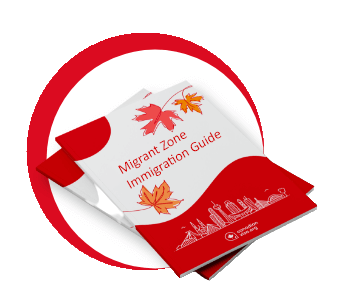Whether you want to move to Canada to live, work or study, chances are you’ll need to have your credentials and qualifications assessed.
What is the Difference Between Credentials and Qualifications?
Your credentials are your educational programs that you have acquired outside of Canada while your qualifications are everything that your prospective employer will look at on your resume when considering hiring you. In other words; your qualifications are your credentials, competencies and your work experience.
The opportunities in Canada are abundant and whether you decide to stay on and work in Canada or move back to your home country or abroad with your newly acquired education and skills, Canada offers a wide range of opportunities for almost every occupation you can think of!
Why Study in Canada?

Studying in Canada not only offers the opportunity to garner an excellent education but will allow you to meet new people from all over the world, experience new cultures in a diverse and safe environment as well as explore the cities and natural beauty of the second-largest country in the world. More than half a million international students choose Canada as their ideal destination and nearly two-thirds of them decide to stay and work after graduation through programs like the Post-Graduation Work Permit Program (PGWPP).
To attend a Designated Learning Institution (DLI), however, you may have to have your foreign credentials assessed to show that you will be able to confidently take lectures and classes and reach the goals you have set out for yourself. For this you will need an Educational Credential Assessment.
Many Canadian immigration programs, such as those under the Express Entry system as well as Provincial Nominee Programs (PNPs) and the Atlantic Immigration Pilot also require having your education credentials assessed.
Why Work in Canada?

Canada has one of the largest and most stable economies in the world and is one of the leading countries when it comes to innovation and technology, agriculture as well as various other industries. Not only will you be able to take home an attractive salary but you will also be able to enjoy incredible work benefits such as paid annual and parental leave, shorter working hours and employee training opportunities but you and your family will have a high quality of life by having access to Canada’s free world-renowned education and healthcare system.
Working in Canada in a regulated profession and trade, you may have to go through a three-step process:
- Have your foreign credentials assessed;
- Have your qualifications recognized; and
- Obtain a license or certification.
Finding a temporary job in Canada could also lead to permanent residency through immigration programs such as the Canadian Experience Class or various provincial experience programs in as little as six months to a year!
What’s the Next Step?
It’s important to explore all your options before you start any application processes. Canada offers over 100 opportunities to move to Canada. Once you know whether you want to live work or study in Canada, we’ll be able to advise you on which Canadian immigration program or visa options will be best suited to your needs as well as guide you on your journey to Canada, every step of the way.
Study in Canada: Educational Credential Assessment
Whether you want to further your studies in Canada or want to work in Canada you may be required to prove an Educational Credential Assessment. This is to show that your degree, diploma or certificate acquired outside of Canada is up to Canadian Standards and can also help you immigrate to Canada by scoring you extra Express Entry points!
Read More...Work in Canada: Work Qualification Assessment
If you want to work in Canada, you will need to show your prospective employer as well as the Canadian authorities that you are able to perform the duties required of you at the standards set by the Canadian government, your employer as well as provincial and territorial authorities. To do this you will need to have your education, skills and work experience assessed.
Read More...



